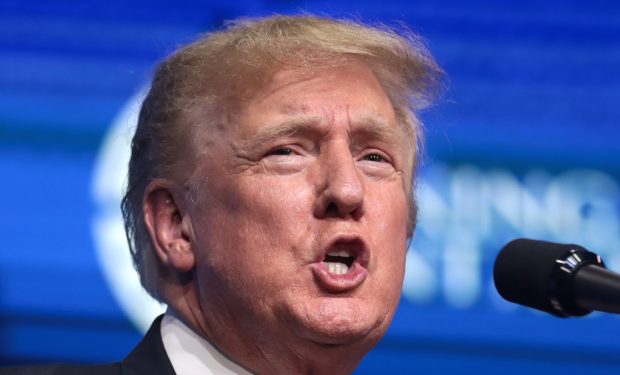As the news broke of Donald Trump‘s third indictment — this time for multiple conspiracies, including conspiracy to defraud the United States — most major media outlets amplified a crucial misconception about the prosecution’s charges as they are articulated in the document.
The misconception — shared by outlets as diverse in political viewpoint as the Washington Post and the National Review — asserts that for Trump to be convicted of the charges laid out in the indictment, it would need to be proven that the former President knew that he was spreading false information (i.e., that he believed the lie he was telling) when he questioned the vote count and publicly floated unfounded theories about voter fraud and voting machine irregularities.
As former U.S. attorney Joyce Vance explained when the indictment was released, this is not true. Whether or not Trump knew he was lying — and the government does incidentally make the case that he knew — is irrelevant, Vance explained, to the more important charge that Trump’s conduct violated the law.
Vance writes that the indictment “clarifies that this isn’t about going after Trump for his speech, which is arguably (at least in his view) protected by the First Amendment. It’s about his conduct, illegal conduct.”
Batting away the First Amendment defense, Vance explains that the indictment makes clear that proving Trump was lying isn’t critical to a conviction. Laying out “some parameters,” she says, the indictment allows that “Trump could legally lie about the election and say it was tainted by fraud.”
What the indictment says the former President could not do is pursue “unlawful means of discounting legitimate votes and subverting the election results.” That is not a free speech-based charge, but a conduct charge — “unlawful means.”
Trump’s alleged lies may well be protected, as his attorneys claim, by his First Amendment right to free speech, but his conduct in the aftermath of the election enjoys no such protections.
Examples abound of this misconception — that Trump needs to be proven not just deluded, but a knowing liar — being amplified by the media coverage abound, and a few are listed below, including WaPo’s headline: Heart of the Jan. 6 Indictment: What’s In Trump’s Head?
Trump’s own lawyer John Lauro appreciates this ignorance-is-bliss narrative, which supports his defense strategy, since empirical knowledge of Trump’s thoughts is impossible to acquire.
Lauro told Fox News, as the New York Times Maggie Haberman tweets below, that “I would like them to try to prove beyond a reasonable doubt that Donald Trump believed that these allegations were false.”
Trump lead J6 lawyer John Lauro to Fox: "I would like them to try to prove beyond a reasonable doubt that Donald Trump believed that these allegations were false."
— Maggie Haberman (@maggieNYT) August 1, 2023
[Never mind that, as the law firm Werksman, Jackson & Quinn explains: “It is a fundamental legal principle in the U.S. that ignorance of the law is no defense. If ignorance were accepted as an excuse, any person charged with a criminal offense could claim ignorance to avoid the consequences.”]
The misconception is that Special Counsel Jack Smith‘s prosecution has to prove Trump “believed these allegations are false.” It doesn’t, Vance makes clear.
The faulty media take seems largely due to the indictment’s obvious and voluminous intent to show that Trump knew he was lying, even if such proof is not technically necessary for a criminal conviction.
Smith’s team recognizes that an emotional jury in a case of such prominence and magnitude will be made more comfortable convicting if the lies are made manifest.
That’s why the indictment includes Trump quotes seeming to indicate he was aware his claims were dubious, as when he allegedly told the acting Attorney General Jeffrey Rosen: “Just say that the election was corrupt and leave the rest to me and the Republican congressmen.”
There are signs since the original takes appeared that major media is trying to turn the ship around and not amplify the Trump legal team’s talking points. A more careful reading of the indictment is to be expected on further examination, and more nuanced coverage of Smith’s aims and strategy are beginning to appear.
For example, in its immediate coverage, news outlet Axios wrote: “Proving that Trump pushed theories of voter fraud that he knew were false will be key to prosecutors’ efforts to convict Trump.”
In its coverage on Thursday, the day Trump is due to be arraigned, Axios offered a different perspective, writing: “No one disputes that Trump had a right to claim he had won the election, whether he believed that or knew it to be false.”
The newer Axios reporting then asserted that: “The real legal question is whether his actions amounted to a criminal conspiracy. He’s not being indicted for what he said.”
